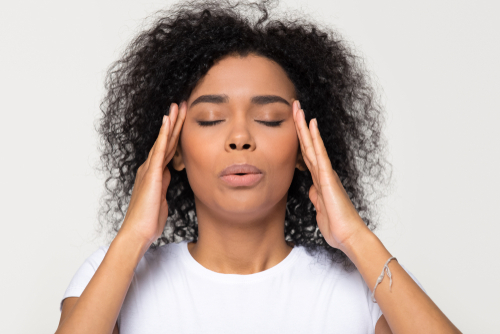
For a lot of people, stress and anxiety interfere with their lives in some way. But one year into the pandemic, many people are experiencing it even more because of added COVID-19 stressors, including health concerns, social isolation, financial insecurity, and home-schooling.
"We are filled to the brim," says Erika Pietzsch, a behavioral health clinician at Summit Health. "There are so many different stressors, and people are in need of some relief."
Medical Effects of Stress
"Stress affects us in all different ways and areas of our lives," says Pietzsch, pointing to how chronic stress impacts both our bodies and our brains. "The fight-or-flight response, which is what people experience during periods of stress, makes your heart rate go up and your stress hormones, cortisol, and adrenaline start to run."
If this is happening long-term, you are at greater risk for:
• Obesity
• Diabetes
• Stroke
• Heart disease
• Hypertension
• Gastrointestinal issues
• Decreased cognitive function
Combating Stress with a Healthy Approach
While anxiety doesn't go away completely, there are positive ways to combat it. “Unfortunately, many people turn to alcohol with the belief that it helps them relax, when in actuality it does the opposite,” says Pietzsch. People say things such as, “It's wine o'clock,” or “I need to have my glass of wine at night before bed.” But they don't realize that over time, those rituals increase their anxiety.
Instead of relying on alcohol or other substances, Pietzsch recommends taking other small steps that make a big difference:
• Take a few deep breaths while you wash your hands. Those two minutes at the sink provide an opportunity to relax. "Close your eyes and imagine a decompression of pressure from the top of your head down to your feet, and take a couple of deep breaths," suggests Pietzsch.
• Set phone reminders to take breaks from your computer. "We perform better with five-minute breaks," she says. "Getting up and walking away actually helps us regain focus."
• Exercise. "People often say they don't have time for exercise," Pietzsch says. "But getting up early and burning off excess energy helps decrease anxiety levels throughout the day."
• Engage in mindful activities. Puzzles, coloring, or simply going for a walk and observing your surroundings allow you to focus on what you're doing in the moment and not think about outside stresses, such as work.
• Spend time around animals. "The added responsibilities of having a pet can induce stress, but pets are actually very good for de-stressing people as well," she says, pointing to the relaxation benefits of taking your dog for a walk or petting your cat on the couch. If getting your own pet is not an option, volunteering at a local animal shelter can help lower stress levels.
• Practice gratitude. Showing gratitude or expressing thanks offers many health benefits, such as improved mood, more happiness, greater optimism, better physical health, and lower rates of stress and depression. Many free apps are available to help you get started. Simply search “gratitude” in your phone’s app store.
The small changes above can make a huge impact, but if stress and anxiety are impeding the way you function, you should discuss medication or therapy options with your doctor.
